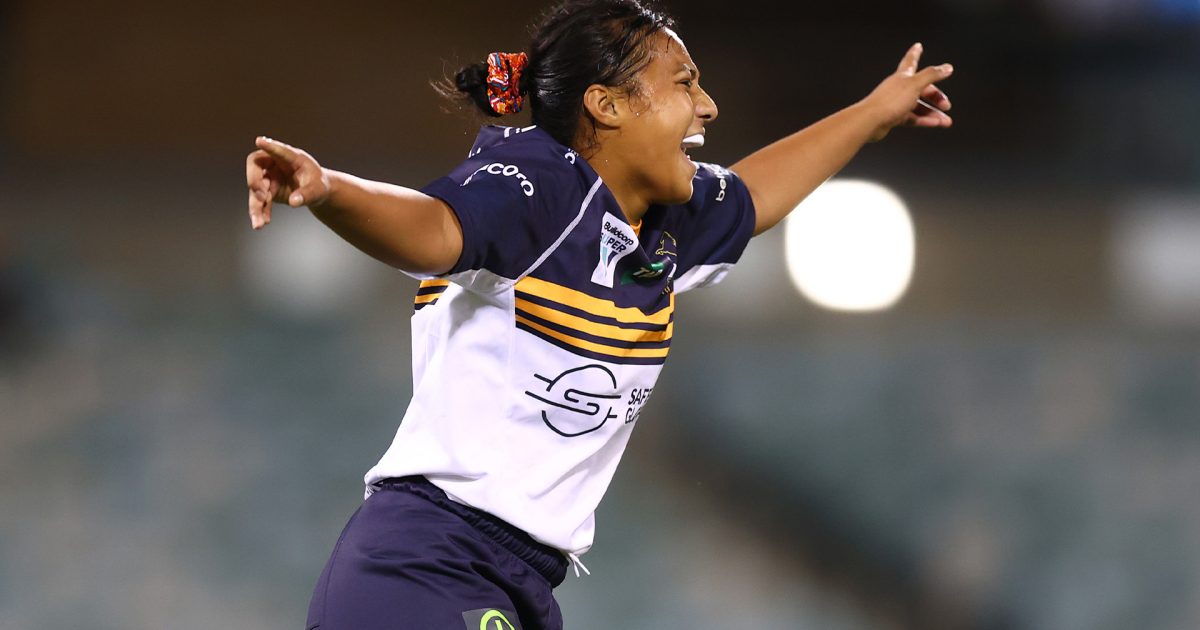Wallaroos to set next generation of talent loose against Fiji

The Wallaroos are undergoing a generational renewal as the side prepares to take on Fiji in Sydney.
As Olympic champion and Wallaroos captain Shannon Parry readies for her swan song, a host of rugby players are just starting their international journey.
Brumbies youngster Faitala Moleka will be one of four players making their debut for Australia in Saturday’s Test at Allianz Stadium.
The fullback, who only began playing Super Rugby this season, said the call-up for the national team was beyond her wildest dreams.
“It’s a blessing just to be given this opportunity to put on this green and gold jersey. It means a lot to me,” Moleka said.
“Not just to me as but, to my family as well, and the sacrifices they’ve made to get me here.
“It’s a village is what brings me up and makes me who I am, so big shout out to my family.”
And the way the 18-year-old broke the news to those closest to her even had a youthful flavour.
“First person I called? I didn’t really call anyone at first,” Moleka said.
“I just screenshotted my phone and sent it to my family chat and they were like, ‘woo!'”
Wallaroos assistant coach Sione Fukofuka said the future of women’s rugby was bright judging from the talent coming through Super Rugby.
“The confidence that the young group has brought is really a testament to some of our development pathways,” he said.
The Wallaroos will come up against a Fijiana side that won the Super Rugby Women’s competition earlier this month.
“Pretty excited with our younger players, that they’ll come in with a little bit of endeavour and bravery to play,” Fukofuka said.
“And then our senior players will hold us nice and tight with our discipline and their ability to stay in structures.”
Parry, who made history by leading the Australian rugby sevens side to a the inaugural gold medal at the 2016 Rio Olympics, will hand the captaincy baton to 22-year-old Piper Duck after she retires.
Duck will make history being the team’s youngest leader.
“Piper’s fantastic in terms of what she brings to the team as a player, but her maturity off the field is something that once you speak to her, it really connect to,” Fukofuka said.
“The future of rugby is bright.
“It speaks to the fact that the next generation is ready to take over.
“Shannon’s had a fantastic influence but now it’s time for the generation of Piper and so on to lead us forward.”

























